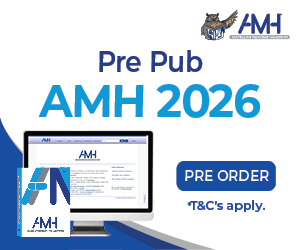Australian pregnancy care guidelines state that testing for blood borne viruses (BBVs) should happen at the first antenatal visit to prevent mother to child transmission of hepatitis B and HIV, and for maternal and neonatal case identification of hepatitis C (DoH 2019).
BBV testing guidelines and legislation have changed over time as the efficacy of treatments has improved. Midwives play a critical role in ensuring that guideline-based HIV and hepatitis screening occurs during early pregnancy.
Current RANZCOG and Department of Health (DoH) guidelines for HIV and hepatitis antenatal screening are broadly in alignment, however, this has not always been the case. DoH policies did not align with RANZOCG’s earlier recommendations for universal screening for HIV and HBV until 2006 and 2011, respectively (Hunt 2002; DoHA 2006; DoH 2012; DoH 2019).
Similarly, DoH antenatal hepatitis C screening policies have leaned toward risk-based screening (DoH 2012), whereas RANZCOG guidelines have generally emphasised discussing testing with all women (RANZCOG 2020).
Since the early days of the HIV epidemic, Australian states and territories have legislated certain information be provided at the time of HIV testing and following the return of positive test results.
In some jurisdictions, such as Victoria, previous legislation required that healthcare workers (including midwives) complete specialised training before they could initiate testing. These restrictions emerged during a time when HIV was largely fatal, and specialised ‘pre-test counselling’ was seen as necessary to support people through the decision test (Johns 2016). Improvements in HIV treatment and care mean that HIV is now a chronic manageable condition, and shorter pre-test discussions are sufficient to gain informed consent.
Midwives are central to ensuring BBV testing is completed in early pregnancy. Booking midwives need to locate and interpret any BBV serology that may have been done by the GP in very early pregnancy, ensure women are given their results, and importantly check whether follow-up testing is needed.
Where BBV serology is incomplete at the booking visit, midwives need to initiate testing discussion and gain informed consent for testing. Informed consent for BBV testing means that the person being tested understands the test itself, the virus, the possible results, and the benefits and risks of testing (Johnson and Lenton 2017).
Effective short educational interventions, designed and delivered by content experts, are needed to ensure that midwives can give women and their partners’ adequate information and recommendations which support the decision to screen for HIV and hepatitis in early pregnancy. Collaborations between BBV community organisations, clinical services and knowledge translation practitioners can facilitate the development and delivery of targeted training that builds midwives’ competency in this area.
One such example of an effective training intervention was recently devised and conducted by the Australian Research Centre in Sex, Health and Society at La Trobe University and Mercy Hospital for Women. For more information about the content of the training intervention, the evaluation results, or to learn more about best practice in antenatal BBV testing, please contact j.johnson@latrobe.edu.au
Author
Jen Johnson, BA, BBV is Sector Development Program Coordinator at the Australian Research Centre in Sex, Health and Society, La Trobe University, Bundoora Victoria








